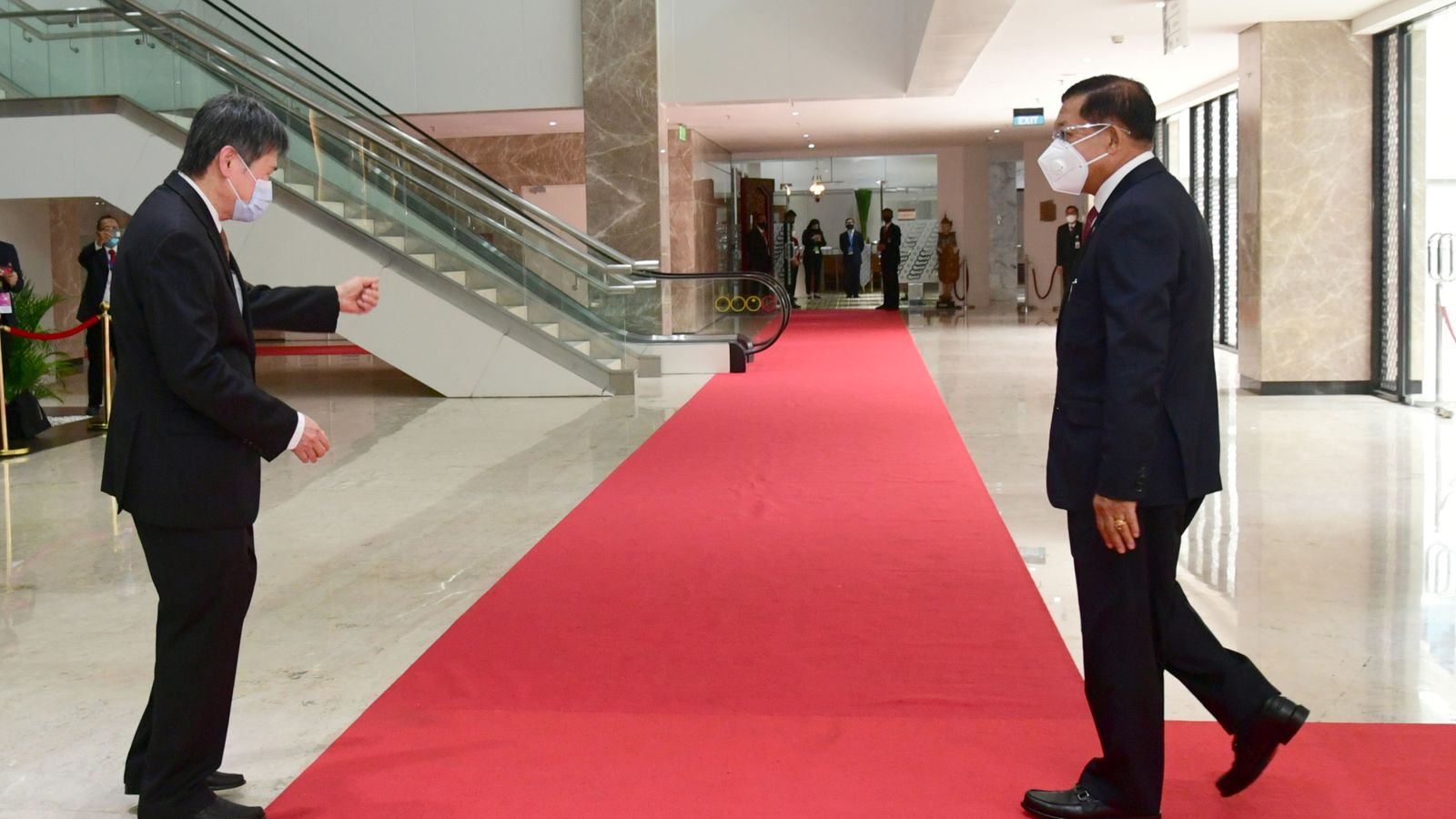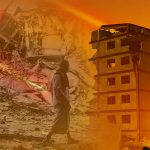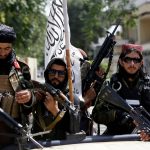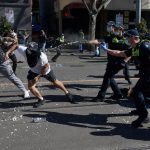Southeast Asian leaders say they have agreed a plan with the general behind Myanmar’s military coup to end the crisis in the violence-hit nation – but he has not responded directly to demands he halt the killing of civilian protesters.
Speaking after the leaders’ meeting of the Association of Southeast Asian Nations (ASEAN) that also featured Myanmar‘s Senior General Min Aung Hlaing, Malaysian Prime Minister Muhyiddin Yassin said: “It’s beyond our expectation.
“We tried not to accuse his side too much because we don’t care who’s causing it.
“We just stressed that the violence must stop. For him, it’s the other side that’s causing the problems. But he agreed that violence must stop.”
ASEAN leaders were seeking a commitment from Min Aung Hlaing to restrain his security forces, which an activist monitoring group says have killed 745 people since a mass civil disobedience movement erupted to challenge his coup in February.
They also wanted the release of political prisoners.
“He did not reject what was put forward by me and many other colleagues,” Mr Muhyiddin said.
A statement from group chair Brunei said a consensus was reached on five points – ending violence, a constructive dialogue among all parties, a special ASEAN envoy to facilitate the dialogue, acceptance of aid, and a visit by the envoy to Myanmar.
However, it made no mention of releasing political prisoners.
“He said he (Min Aung Hlaing) heard us, he would take the points in, which he considered helpful,” said Singapore Prime Minister Lee Hsien Loong, according to Channel NewsAsia television.
“He was not opposed to ASEAN playing a constructive role, or an ASEAN delegation visit, or humanitarian assistance.”
But Mr Lee added that the process had a long way to go, “because there’s one thing to say you’ll cease violence and release political prisoners; it’s another thing to get it done”.
There was no immediate comment from Min Aung Hlaing.
And Charles Santiago, head of the ASEAN Parliamentarians for Human Rights group, said: “The release of political prisoners is a necessary requirement for the cessation of violence.
“ASEAN must now act swiftly and set a clear timeline for Min Aung Hlaing to deliver on ending the violence, or stand ready to hold him accountable.”
Please use Chrome browser for a more accessible video player
Analysis: Whatever the goal of the coup, it has backfired
By Siobhan Robbins, South East Asia correspondent
Ahead of ASEAN’s emergency summit many commentators had low hopes that any meaningful progress would be achieved on Myanmar, so the unusually blunt list of commitments will have come as a surprise.
On paper, the agreements look pretty impressive: that violence should stop immediately, talks should begin to find a peaceful solution, a special Asean envoy should be brought in to help with discussions and allowed to visit, and a pledge to offer humanitarian assistance.
The fact a block of countries with so many conflicting goals managed to reach a consensus is, quite frankly, progress.
The concern now will be how and when these aims will be implemented and if the junta will stick to them.
It wasn’t immediately clear how Min Aung Hlaing responded to the frank messages.
What was apparent was that the frequently repeated demand for political prisoners to be released didn’t make the final list of “five points of consensus”.
It was possibly one step too far for Min Aung Hlaing, after all, the idea that he might soon release his main political competitor, Aung San Suu Kyi, from detention seems highly unlikely.
Her party’s drubbing of military backed politicians in last year’s election was one of the catalysts for February’s coup and a junta struggling to keep control is hardly going to want the poster girl for many pro-democracy activists back on the streets.
Stopping violence may also prove difficult – widespread protests despite increasing crackdowns prove how deeply unpopular the generals are.
Their access to guns and their seeming willingness to turn them on citizens is what’s keeping them in power.
Whatever the goal of the coup in February, it has backfired – Myanmar is on the brink of collapse, crippled by economic, political and social turmoil.






















